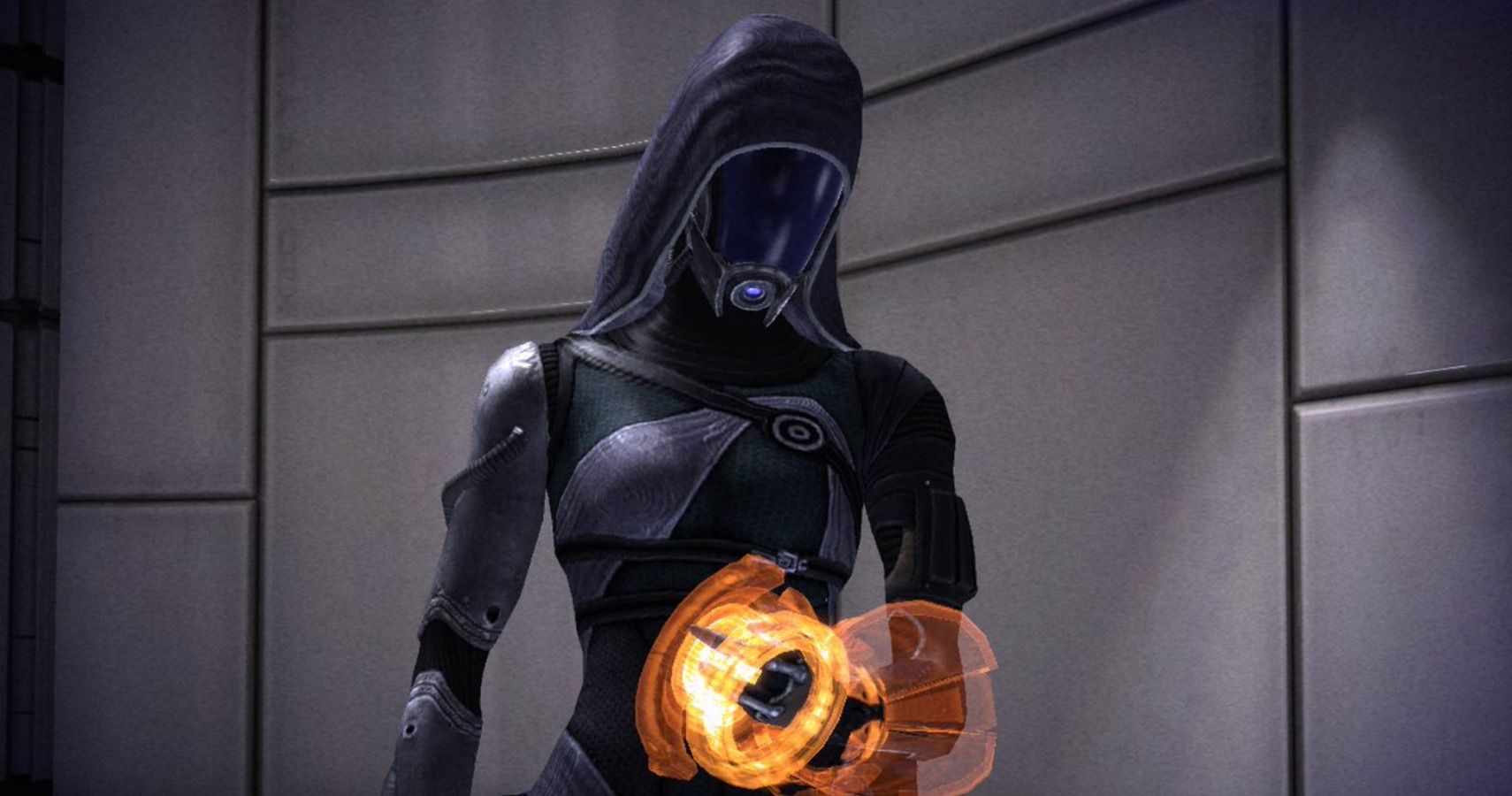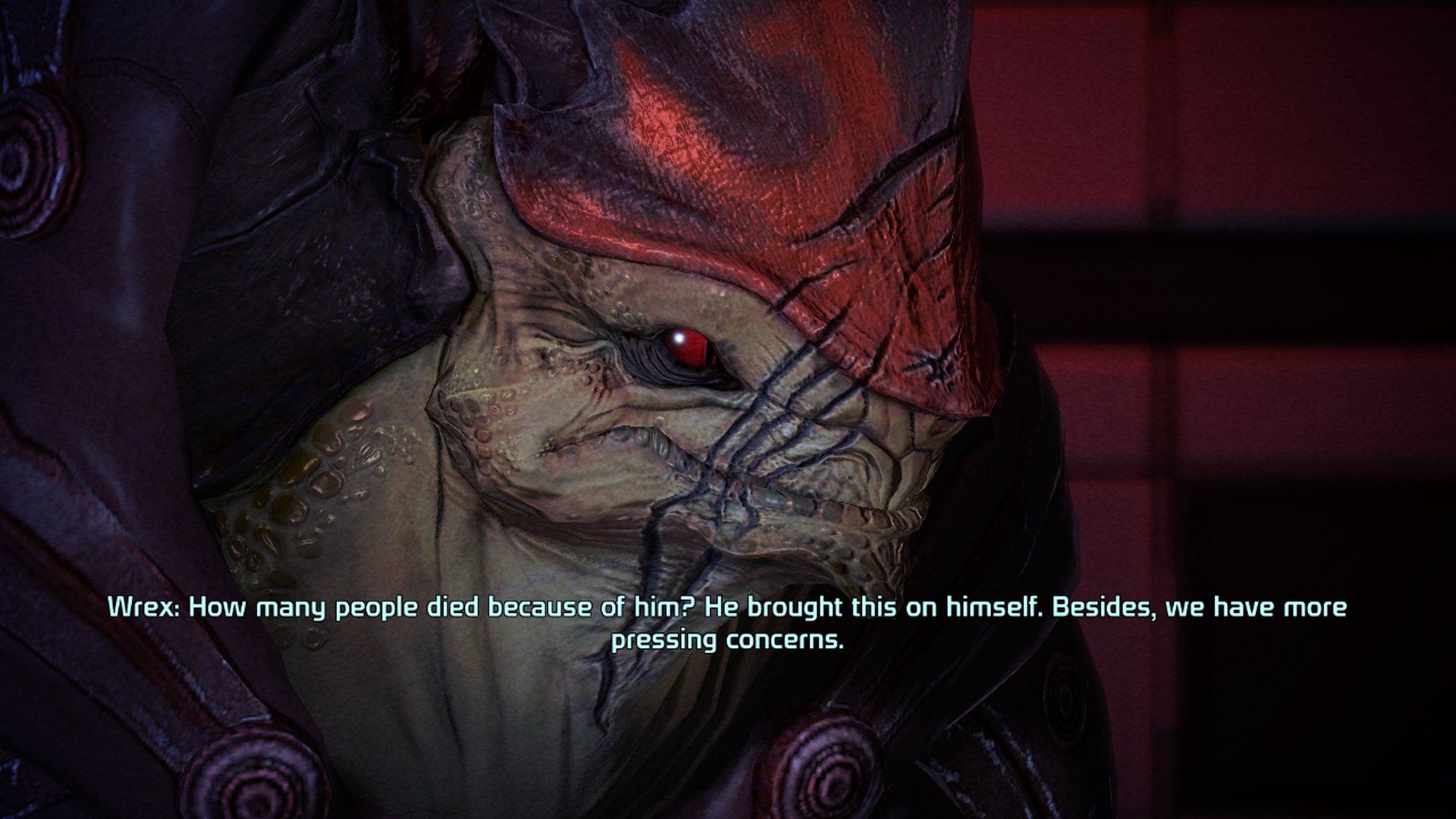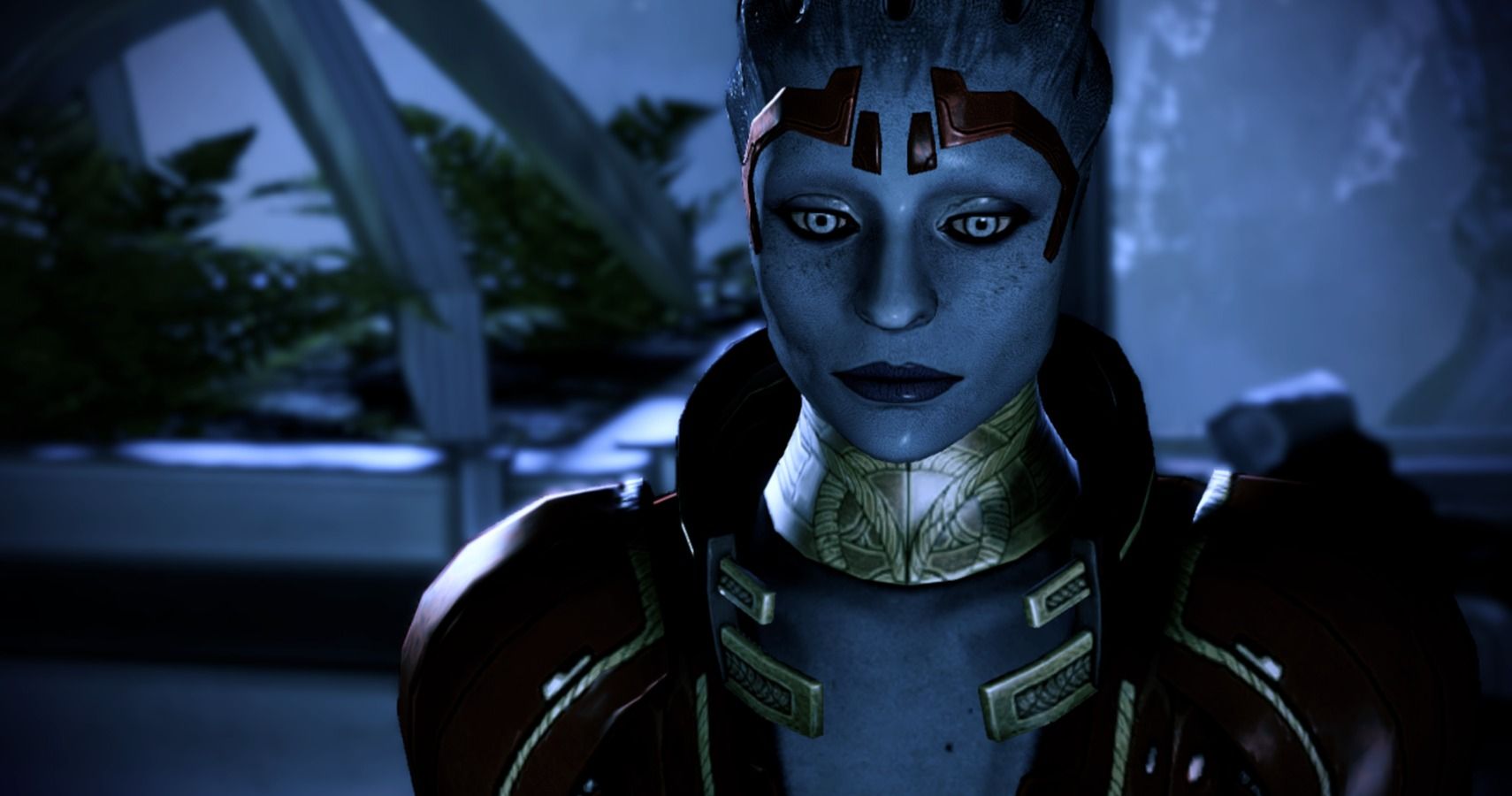I know there’s a good chance that you, the person reading this, are probably shouting, “Mass Effect 2! Mass Effect 2!” at the screen right now. I get it. Mass Effect 2 is an exceptionally good game. That suicide mission, eh?
Unfortunately, Mass Effect 2 is not the best Mass Effect game. This is coming from someone who has been replaying the trilogy recently, by the way, as opposed to simply remembering how I felt about it almost a decade ago. If you asked me what my favourite Mass Effect game was last week, you’d better believe I’d have said the second one. Now I know better.
Mass Effect launched in 2007 and took the world by storm. It had that signature BioWare flair, where you recruit six different squadmates and learn all about them via branching dialogue. At least one of these companions is destined not to make it to Mass Effect 2, which makes your first playthrough a shock and every run thereafter an ordeal. I’m already looking at characters I know and love like, “Damn… Well, at least I know how to save you.”
That’s the first reason as to why the original Mass Effect game is so incredibly strong: it has stakes. It’s impossible to bring a full squad with you to Mass Effect 2, meaning that you’ve got to deal with actual consequences before you even boot up the second game. Mass Effect 2 is great, mind, and I enjoy that one mission everybody is always banging on about.
But listen, it kind of flies in the face of what made Mass Effect special in the first place. When people talk about BioWare at its best, they talk about cause and effect. The idea of the whole squad persevering against all odds and escaping from the Collector Base if Shepard is both a competent commander and good friend is nice and all, but I think the reason it’s endured has at least as much to do with how out of place it feels as how well designed it is. The mission is mostly made up of the same cover-shooter mechanics as the rest of the game, with a smattering of “Send X person to do Y job” interludes dotted throughout it. I like the concept of it, but the stakes aren’t high, and you can pretty much just ignore them entirely if you put a few more hours into the main game. I don’t think the suicide mission is half as “risky” as loads of people remember it to be.
For what it’s worth, I don’t mean to dismiss how excellent Mass Effect 2 is. Also, it’s important to recognize that the entire game was based on the suicide mission. Although I think the mission itself has been pretty warped in our collective cultural memory, its impact on the rest of what amounts to a phenomenal experience is undeniable. What I’m arguing is that none of this decreases its stark opposition to the hard-boiled and gritty sci-fi story that came before it.
I sometimes wonder if the reason so many people are attached to Mass Effect 2 is because of how safe it is. People die in the first game and people die in the third one, but with Mass Effect 2, you can save everyone. This is a series that starts and finishes with you making choices and having to deal with the consequences of them - but in the middle, all consequences can be totally mitigated for a while. I think a lot of people probably wanted Mass Effect 3 to end like Mass Effect 2 did, where you go on an all-out assault against the Reapers with all of your best buds, and then you just fly off into the sunset as Commander Shepard, hero of the galaxy. But that’s not BioWare. That’s not Mass Effect.
Mass Effect 3 is probably my least favourite game in the trilogy. I still love it, mind, but we’ve all got to decide our definitive ranking at some point. That being said, I’m fully aware of the fact that I like Mass Effect 2 because of the safety it offers. I appreciate getting to know these characters and knowing full well that I’ll be bringing them into the next game with me. I also think some of the loyalty missions are immensely well-written - namely Jack’s, Samara’s, and Kasumi’s.
Mass Effect 3 disappointed a huge amount of players - even some of the developers weren’t happy with the ending. At the same time, it paid far more attention to the first game than Mass Effect 2 did, despite that one being a direct sequel to it. Mass Effect 3 hits its peak long before the ending and stays at that height until right before it, and I think a lot of that is attributable to the complexity and nuance of the first game’s stories. As the Reaper War rages on, you think of Saren Arterius - Mass Effect’s best villain - and start to see him in a different light. The events of the first game are what inform the entire organic vs AI conflict that is endemic to the last act. What’s more, people die. You can save some, others not so much - but there’s never really a way of telling who you can help and who you can’t, which resembles those same stakes that made the first game special. Like the spikes on the original Eden Prime, they extend high up into a weird, hazy fog - you can’t quite see how high or fickle they are. This is probably why my first run of Mass Effect 3 ended up being a disaster. I lost far more people than I expected to, despite thinking I was playing a pure Paragon Shepard who had carried everyone through the suicide mission. I had been led into a false sense of security, a belief I could and would save everyone - but if you go back to the first game, it teaches you very, very quickly that this simply cannot be the case.
This piece has mostly just talked about how consequences matter in Mass Effect, and about how the first game addresses that with far more tact than the other two. However, there are other elements of it worth discussing as well. The bar set by the art direction in the original Mass Effect is never quite reached by the other games. I still remember the first time I set foot on Ilos, a world that screamed ancient and alien in harmony with one another. I remember the contextual dissonance between that aesthetic and the events that followed, making the entire experience strategically uncanny in the way a robust sci-fi RPG should be.
This same logic can be applied to Virmire, Feros, Eden Prime, the original iteration of the Citadel… Noveria is a shithole, but it’s supposed to be a shithole, so it’s fine. Despite its focus on synthetic life, the first Mass Effect game feels almost ironically organic. From meeting Tali for the first time to losing a squad member several hours into the game, it flits between highs and lows in a genuinely palpable way that sets the bar for the entire series that follows it. Let’s not forget that it introduced an entire galaxy of alien species. People have complained about it for years, but I’m curious to see how many people will change their minds about the first Mass Effect game once Legendary Edition launches on May 14.
Also the first Mass Effect has the best music, cheers.



